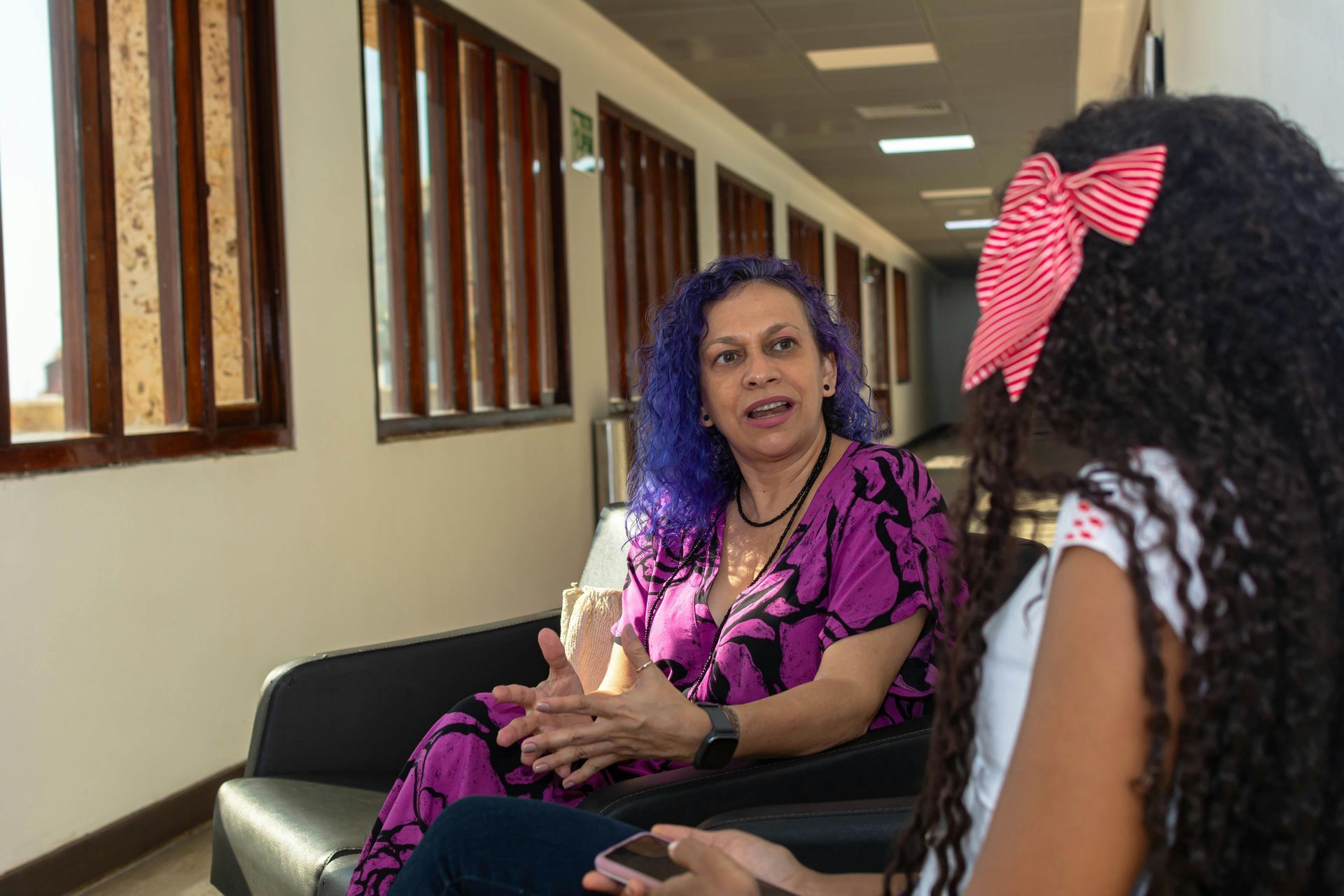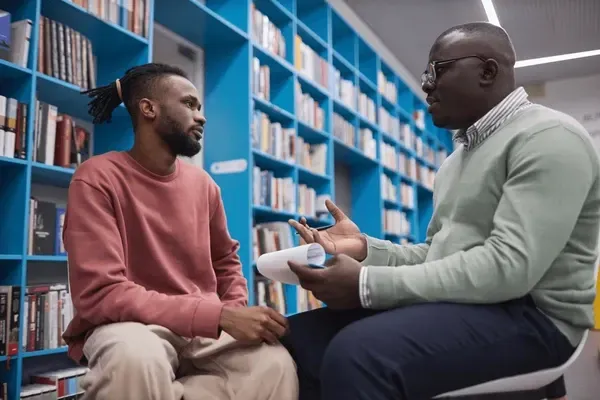Think Twice, Act Once

Mission 21 was originally founded by Victor Brown, a mentor of Jayla’s Dad & Board President, Hammer Davis. Victor believed in instilling the principle of “Think Twice, Act Once”, amongst the students he served during his tenure at Sherwood Elementary just as he did with the young men he mentored away from the job. In 2017, Victor passed away, but his legacy lives on, after transitioning, Victor was honored on the pay it forward segment by the local news which is a special feature that recognizes and celebrates individuals and organizations making a positive impact in their communities. With the blessing of his widow, (Janice), Mission21 was reimagined to help adults, educators, and mentors recognize the early warning signs of substance abuse and addiction.
✔ Think twice when you notice subtle signs—social media activity, hidden emojis, declining hygiene, behavioral shifts.
✔ Act once to intervene, educate, and provide support before it’s too late.
Mission 21 serves three major chapters:
✅ Mission21 - Nexus — A collegeiate Campus club helping members identify other students in crisis and offering support and resources.
✅ Mission21 — Gaurdians Eye — Middle & high school faculty & staff—equipping those who spend the most time with vulnerable youth.
✅ Mission21 — Community Alliance —Neighborhoods, HOAs, and community groups—because prevention starts at home.
MISSION21
Guardian Eye
The Guardians program is designed to empower teachers, faculty, and staff within schools to recognize the early signs of substance abuse and understand the science behind addiction. This program provides professional development opportunities, training on emerging trends in drug use, emoji codes, code words, and subtle behavioral changes that may indicate a student is experimenting with drugs or forming a habit. Guardians equips school staff with the skills needed to identify, intervene, and provide appropriate support for students who may be at risk of substance abuse. The goal is to create a proactive, informed network of educators who are able to create a supportive environment in which students are protected and guided toward healthier choices.
Why It Matters:
Educators and school staff are often the first to notice when a student is showing signs of substance abuse or struggling with mental health issues. According to research from the National Institute on Drug Abuse (NIDA), early identification and intervention are key factors in preventing addiction and reducing substance abuse in adolescents. When educators are trained to recognize signs such as changes in behavior, academic performance, or the use of drug-related emojis and code words in digital communication, they are better equipped to intervene before a habit turns into a serious addiction.
A study published in the International Journal of Environmental Research and Public Health examined the effectiveness of school-based interventions in preventing substance use among adolescents. The findings indicated that such programs, when implemented effectively, could significantly reduce the initiation and prevalence of substance use among students.
MISSION21
Nexus
The Nexus Collegiate Club engages college students in addressing the growing issue of substance use disorder among their peers. This program provides students with the resources, knowledge, and community they need to become leaders in preventing substance abuse and promoting mental health on campuses. Through peer-led workshops, awareness campaigns, and access to substance-free social spaces, the Nexus Club works to change the culture around substance use and create a safe, supportive environment for college students navigating the pressures of academia, social life, and personal struggles.
Why It Matters:
College students are at a critical stage in their lives, and studies show that substance use patterns developed during this time can carry over into adulthood. According to a report by the National Institute on Alcohol Abuse and Alcoholism (NIAAA), roughly 50% of college students report engaging in risky drinking behavior, and nearly one in four students have used illegal drugs during their time in college. The American Journal of Public Health notes that peer-led education programs can decrease the likelihood of risky behavior by up to 30%, with college students significantly benefiting from mentorship and peer support.
By providing students with tools to navigate the pressures of college life, the Nexus Collegiate Club works to prevent substance abuse while promoting healthier decision-making and stronger, supportive relationships among peers.
MISSION21
Community Alliance
The Community Alliance program works with neighborhoods, including HOAs, apartment complexes, and other similar community groups, to create a network of support aimed at tackling the rise of substance abuse and mental health struggles. We train volunteers from within the community to become Program Coordinators, equipping them with the skills to identify emerging trends in drug use, mental health challenges, and warning signs, including the use of social media emojis or subtle language that can indicate someone is struggling. These volunteers help organize community outreach, provide local resources, and offer mentorship to create a safe and supportive environment where families and individuals can thrive.
Why It Matters:
Research from the National Institute on Drug Abuse (NIDA) highlights that community-based prevention programs can reduce adolescent drug use by up to 25% when local organizations and residents work together. In neighborhoods with active, trained volunteers, there is a decrease in the rate of substance abuse because these communities are better equipped to spot early signs and address them immediately. For example, when families are supported by neighbors who are trained in early intervention, substance abuse prevention, and mental health resources, the entire community becomes stronger, leading to long-term positive outcomes for youth and adults alike.
By creating local leaders within neighborhoods, the Community Alliance program not only combats substance abuse but also fosters resilience and unity, empowering each community member to support one another through shared responsibility.
Contact Us
We will get back to you as soon as possible.
Please try again later.
JOIN THE MISSION





